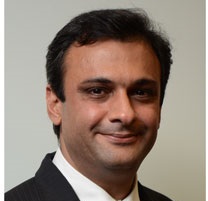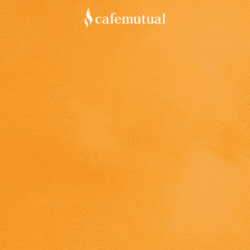 You are the 7th largest fund house in terms of AAUM. What are your aspirations?
You are the 7th largest fund house in terms of AAUM. What are your aspirations?
We have a business in India with a great management, strong products, good performance and a reputable brand. We want to continually add value to our investors and business partners. We also wish to make a mark in service standards by making technology the backbone. On the investment front, we aim to continue bringing global investment expertise with a local perspective through a well-experienced and stable portfolio management and research team.
Very few foreign AMCs have been successful in India. What has worked in FT’s favor?
FT’s real competitive advantage is our brand – a solid and reliable one. Over the years, we have built a great amount of trust and respect with our distribution partners, industry peers, regulators and investors. We are known in the market for our long-term view versus chasing the flavor of the month; for our sustainable business model – whether it is the products we offer or our pricing and services.
The biggest challenge for the 20+ year old Indian mutual fund industry (except for UTI which is over 50 years) is the patience needed to survive and build market share as the pay-back period is very long. To build a formidable presence in India with the right domestic strategies backed by strong performance, a fund house may need anywhere between 5-7 years or at times even a decade before it turns profitable. Many 100% foreign fund houses are relatively recent and have found it difficult to sustain for various reasons.
A key reason for this is that India is a totally domestic proposition where foreign asset managers need to adopt the policy of global expertise and local perspective. The market is also hyper competitive and largely retail and distributor driven who operate on a very dynamic pricing model. Globally, most foreign players have an institutional mindset. However, India is pure retail play and adjusting to this paradigm takes time and extreme amount of patience.
What new initiatives you are planning for distributors and investors?
We have launched various initiatives across marketing, products and services for the benefit of our distributors and investors. From a service perspective, we have expanded our physical branch network by adding 5 new branches (Jamshedpur, Ranchi, Bhopal, Allahabad and Guwahati) over the last 6 months. This takes our branch strength to 38.
We are also building our technology footprint to enhance the convenience of distributors and investors. We have launched ‘First Serve’ for our distributors, wherein we are continuously widening our ambit of services through initiatives like detailed brokerage statement, technology driven ‘Distributor Enabled Transactions’ across purchase, redemptions, switches besides launch of six new payment options for ease of the ‘last mile’. We are also in the process of revamping our digital ecosystem by launching a refreshed website very soon.
We are also using digital advertising strategies to capture the investor’s mindshare besides strengthening our brand presence on social media. Further, we have conducted various training programs for our distributors on how they can use technology and social media to provide value-adds as well as enhance their connect with investors.
How did you come up with the idea of Good EMI?
With the overload of options that people have today for consuming information, attention spans are at a premium. Brands do not have the luxury for having the undivided attention of their prospective customers. This demands that messaging is memorable, one that the consumer relates to and is easy to digest.
SIP is a great first step for a first time investor into mutual funds. Even for existing mutual fund investors it is a very effective tool to create a corpus over the long term to achieve their financial goals. The task at hand was to develop a message that is easy to understand and relate to. EMIs are a part of every retail consumer’s life. They understand that it is something that they pay regularly over the long term, which is what is required to invest via an SIP. We called it the ‘Good EMI’ which is an ‘investment’ and not an ‘installment.’
Tell us more about the Franklin Templeton Academy. How can investors pursue courses from this platform?
We have been propagating investor education and distributor training for over a decade through the Franklin Templeton Academy (FTA). However, we always felt the barriers of timing, language and geography when we wanted to build scale. Hence we adopted technology and launched the online FTA in 2013 which had online videos for both investors and distributors. There were 22 videos for investors and 9 for distributors across 5 languages – English, Hindi, Gujarati, Tamil and Bengali – all free of cost and available on www.franklintempletonacademy.com besides www.youtube.com.
Please tell us more about your First Serve platform which is meant for distributors.
Our digital platform for distributors is ‘First Serve’. The objective of this platform is two-fold:
- Transaction execution: It allows a distributor to originate a purchase, switch or redemption while continually tracking the transaction to fulfillment.
- Business development: First Serve provides 3 levels of value add to a distributor – data on distributors’ book of business with us, investment patterns across asset classes and client segments; and finally calling out business opportunities basis identified gaps.
Coming to some industry trends, balanced funds continue to attract investors. Do you see this momentum to continue?
Taxation (minimum 65% in equity) in India has led to shaping balanced funds, more than need of clients. If one had separate equity and debt portfolios in the same proportion as a balanced fund, the long term capital gains tax incidence would be to the extent of the debt portfolio. However, those holding a balanced fund would have nil long term capital gains tax.
Within that typically, category level traction is always seasonal. Here too, when equity valuations peak, investors try to reduce equity exposure and increase debt exposure. Balanced funds are a good fit in such a scenario as they have a relatively lower equity exposure besides providing the same tax benefits as equity funds.
Having said that, it is worrisome that balanced funds are currently being positioned for generating regular cash flows. Client expectations are being set to receive regular income (monthly), from a product with 65-70% exposure to equity. We need to introspect on such short-sighted practices of our industry that will keep pulling us back 2 steps for every 5 we take forward.
Mutual funds are expected to be sold through e-commerce platforms. Do you see this taking off in a big way?
I believe the next wave of growth for e-commerce platforms will come from making services available to consumers on these platforms. Within that investment advice, investment transaction services and choices of investment products are not going to be left behind.
While e-commerce platforms will provide great access, we need to invest in creating awareness about the benefits of MFs and correct guidance or advice in implementing a portfolio.
There is already evidence in China on how e-commerce platforms (Alibaba), through their e-pay models (Alipay) have made MFs a big success in MF distribution.
Distributors are fearing direct plans may hamper their business. What is your advice to them?
Traditional wisdom asks us to adapt to the environment. Direct plans, introduced over 3 years back are here to stay. There is nothing you can do to wish them away.
In this backdrop, my advice to distributors is ‘VoGA’- Value of Good Advice. What is the Value of Good Advice that you provide clients? And I truly believe there is tremendous value addition from the distribution fraternity. It is important to articulate, quantify and repeatedly present this VoGA to clients; else you run the danger of them taking all the good work you do for granted. Even after 17 years of marriage, I have to keep exhibiting my love for my wife in different ways, managing clients is no different.
Further, proposed regulatory changes are likely to bring sweeping changes, primarily in segregating distribution and advisory business models.
From an investor perspective my guidance to them is always about the price you pay and the value you receive. When things are going fine, clients tend to undermine the value and focus on price. It is only when the environment gets challenged, markets become volatile and portfolios begin to drift, that real value is experienced and acknowledged by clients.





